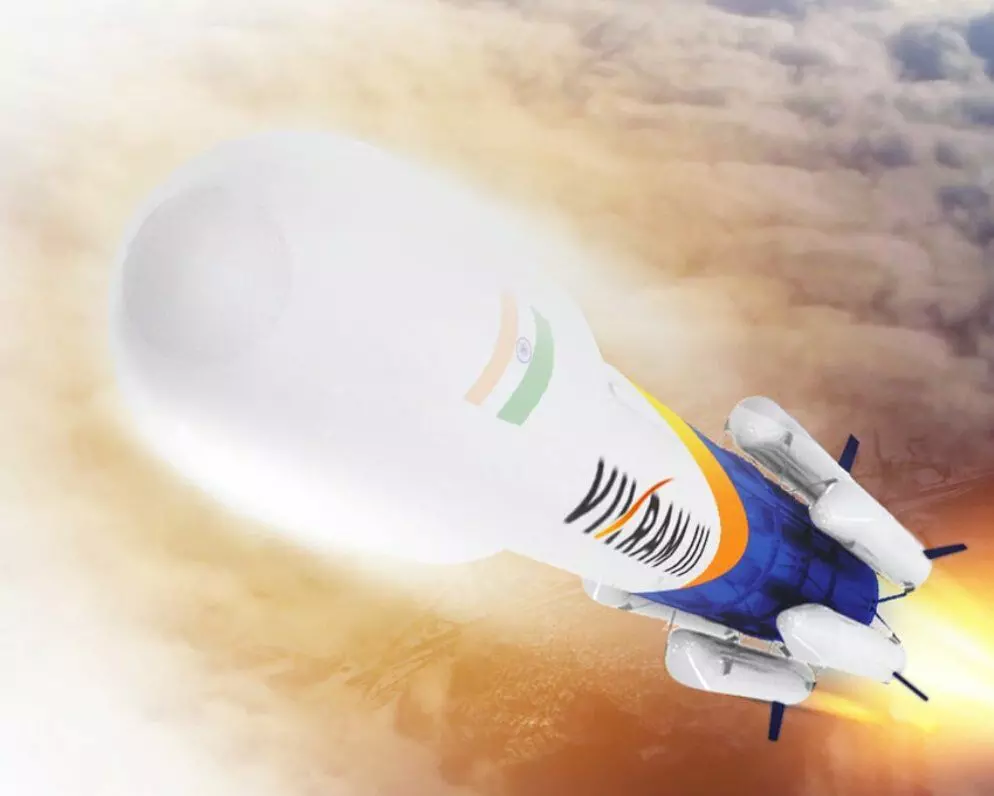Hyd start-up Skyroot Aerospace raises $50.5M, largest funding in space tech
With this new round, Skyroot has raised over $67 million to date and is now valued at $165 million
By Newsmeter Network
Hyderabad: City-based space start-up Skyroot Aerospace raised $50.5 million (Rs. 403 crores) in Series-B financing round. This is the largest funding round ever in the Indian space-tech sector. With this new round, Skyroot has raised over $67 million to date and is now valued at $165 million.
Skyroot Aerospace was founded by former Indian Space Research Organization (ISRO) scientists Pawan Kumar Chandana and Naga Bharath Daka in 2018. It is the first Indian private aerospace company to successfully test a fully cryogenic rocket engine named Dhawan-1 in honor of eminent Indian scientist Satish Dhawan. The Hyderabad-based start-up claims that it will probably be the cheapest satellite launch vehicle in the world.
Skyroot is pioneering India's first privately developed space launch vehicles—the flagship Vikram series of launch vehicles named after the founder of India's space program Dr. Vikram Sarabhai. Vikram series rockets are uniquely built with an all-carbon-fiber structure and can launch up to 800 kg of payloads to Low Earth Orbit (LEO).
The Hyderabad-based firm is the first start-up to sign an MoU with ISRO for sharing facilities and expertise.
"We are proud to welcome one of the world's leading institutional investors as a long-term partner in our mission to 'Open Space for All'. This round puts us on a trajectory of hyper-growth by funding all of our initial developmental launches, and enables building infrastructure to meet high launch cadence required by our satellite customers. Our objective is to establish ourselves as a provider of best-in-class rocket launch services and the go-to destination for affordable and reliable small satellite launches," said Pawan Kumar Chandana, co-founder and CEO of Skyroot.
Naga Bharath Daka, co-founder and COO of Skyroot, said, "We have validated all three propulsion technologies in our Vikram space launch vehicles, and completed a full duration test of one of our rocket stages in May 2022. We are also planning a demonstrator launch to space this year. This round will help us get to full-fledged commercial satellite launch scale within a year from now. We have started booking payload slots for our upcoming launches."